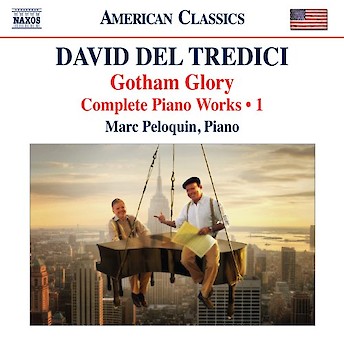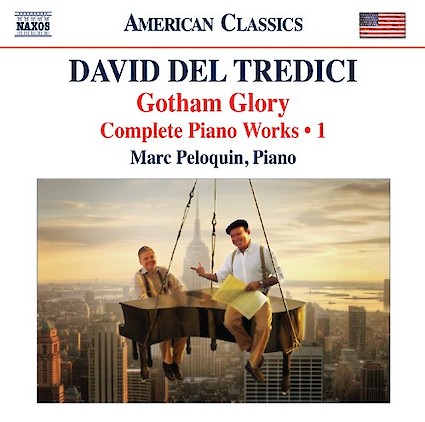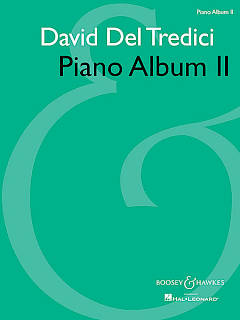Having lived and loved in New York for more than 40 years, I thought it time to celebrate the place in my own idiosyncratic way. "West Village Morning" is an appropriately sunny, short work which acts, as well, as a prelude to the ensuing fugue, "Museum Piece". A ten-minute, highly developed work, the fugue pays homage both to old musical forms and the New York's museum riches. "Missing Towers" (referring of course to the World Trade Center towers that the city lost on September 11, 2001) is a mysterious piece. The two voices in continuous canon with each other are my way of recalling those two significant buildings. At the very end, the pianist leaves the keyboard to play, on the inside of the piano, a further expression of vanished glory. The final movement, "Wollman Rink", is a virtuoso extravaganza — a 15 minute fantasy on Emil Waldteufel's "The Skater's Waltz". With cascading runs, arpeggios, and general pianistic fireworks, it stands to test any performer's mettle. This work was commissioned by the Carnegie Hall Corporation and dedicated to and premiered by Anthony de Mare.
In this suite of four pieces, the composer continues his recent preoccupation with exploring the aesthetic and sound of Romantic piano music, especially that of Schubert and Liszt.
His idea is to put a radical spin on the Romantic style, to come up with something that sounds like discombobulated and mystically modern Liszt.
The program features lighting designed by Jared Sayeg and video by Anney Bonney to accompany the title piece: David Del Tredici's 35-minute, world-premiere celebration of New York City, which ranges from the 9/11-inspired "Missing Towers" (with a section played on the inside of the piano) to "Wollman Rink," a virtuoso extravaganza based on Waldteufel's nostalgic "Skater's Waltz."
The program's title, "Gotham Glory," is taken from Del Tredici's work of the same name. De Mare has performed and recorded a number of pieces by Del Tredici, including five mostly romantic works on his new, beautifully played Koch CD, "Out of My Hands." "Gotham Glory" consists of four pictures of New York: "West Village Morning," "Museum Piece," the 9/11 requiem "Missing Towers" and "Wollman Rink."
"The last movement is extremely gay," de Mare said. "It winks at the audience/ As it goes on, it becomes more dramatic and much more deeply felt. It includes moments that David really meant to be campy and charming, and others that are very dramatic and meaningful. There are so many facets of being gay and how we see it for ourselves. One is the acknowledgement of the masculine and feminine within. David really captures the feminine and the masculine energies within this piece. If anyone can tap into the animated qualities of being gay, it's Del Tredici."
Audio (1)
Recordings (1)


Gotham Glory: Complete Piano Works Vol. 1
2016, Naxos (8.559680)Works
Performers
- Marc Peloquin, piano
